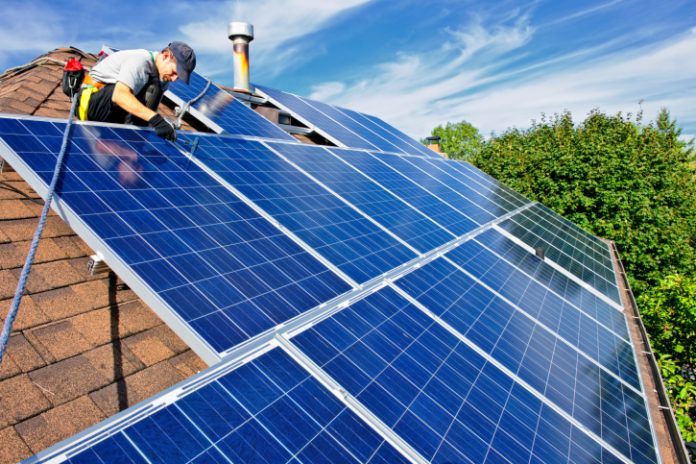A bill to reduce the cross-subsidies paid to owners of rooftop solar installations from general ratepayers lacking roof top solar systems has been introduced in the Florida legislature.
Sponsored by Republican Senator Jennifer Bradley, S.B. 1024 was filed at the end of 2021 and passed in the Senate Committee on Regulated Industries.
If the bill ultimately becomes law it would require the Florida Public Service Commission (FPSC) to establish new net metering rules that, “ensure that public utility customers owning or leasing renewable generation pay the full cost of electric service and are not subsidized by the public utility’s general body of ratepayers.”
In addition, the rules would require roof top solar owners to pay full retail rate for any electricity they draw from the grid, and be paid the avoided cost of the any excess power they sell back to the grid, which is approximately the wholesale rate, rather than retail rate.
Exiting roof top solar owners incorporated into the power system under present rules will permitted to remain under the old rules for a transitionary period to be set by the FPSC.
‘Fair and equitable’
The bill’s text emphasizes it is not attempting to suppress solar power in Florida, but rather to ensure its implementation is fair to general ratepayers who don’t get the benefits of solar credits.
“It is in the public interest to continue the development of renewable energy resources in this state in a manner that is fair and equitable to all public utility customers,” says the bill. “The substantial growth of … customer-owned and -leased renewable generation has resulted in increased cross-subsidization of the full cost of electric service onto the public utility’s general body of ratepayers.
“Therefore, the redesigned net metering rate structures required in paragraph 6(a) must ensure that public utility customers who own or lease renewable generation pay the full cost of electric service and are not cross-subsidized by the public utility’s general body of ratepayers,” the bill says.
Cross Subsidies are Regressive
Roof-top solar subsidies are regressive, transferring wealth from the relatively poor to the relatively wealthy, says Tim Benson, a senior policy analyst for the Heartland Institute, which co-publishes Environment & Climate News.
“Currently in Florida, because utilities must pay the retail price for electricity instead of the wholesale price, it means distributed generation customers are getting reimbursed not only for the electricity they provide but also for the costs associated with building and maintaining the electric grid.” Benson said. “Such cost-shifting impedes social equity, because rooftop solar owners have generally higher incomes than others, so lower-income ratepayers end up paying extra to subsidize higher-income customers.
“Thus, net metering is just another welfare program for the upper-middle class,” said Benson.
The average cost of rooftop solar in Florida can be as high as $14,892 for a 5-Kilowatt system, according to EnergySage, a site which provides quotes for solar installations.
Rooftop solar system owners should be paid at the same rate conventional sources are paid, plus have to cover their share of grid upkeep especially since solar power generation makes grid maintenance more expensive, says Benson.
“Owners of rooftop solar panels should be paid for the electricity they sell back to the grid, they should be paid at the same rate conventional sources are paid, reflecting the true wholesale cost of electricity.” Benson said, “It is particularly unfair for solar owners to be paid for the costs of maintaining the grid because the intermittency of solar power actually increases those costs.”
Sharing Fixed Costs
Rooftop solar customers need to draw power from the grid at night and during cloudy days.
Because of that, S.B. 1024 allows the FPSC to add fixed charges such as “base facilities charges,” to pay for the costs related to accessing the grid during times solar power is not being generated, or a proposed monthly minimum charge to help maintain the electric power grid.
S.B. 1024 went to the Senate Committee on Community Affairs agenda on February 8. If it becomes law, it will take effect in July 2022.
Linnea Lueken (llueken@heartland.org) is a research fellow with the Arthur B. Robinson Center on Climate and Environmental Policy at The Heartland Institute.



























[…] post Florida Bill Would Shift Solar Costs Away from General Ratepayers appeared first on Heartland Daily […]